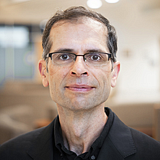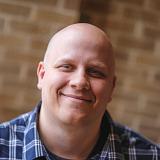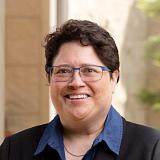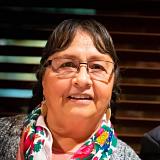
HC2 Projects

HC2 Projects
Project Index
REI-UT
The primary goal of REI-UT is to connect community health center (CHC) patients who use tobacco and live in persistent poverty census tracts with two key resources:
- Evidence-based tobacco cessation treatment provided by the Utah Tobacco Quit Line
- Navigation support to address social drivers (SD)
REI-UT leverages electronic health records to streamline the process for clinic staff to screen patients for tobacco use and SD, inform them about available resources for quitting tobacco and addressing SD, and facilitate connections to these resources. The project also incorporates interactive text messaging, chatbots, and patient navigation provided by community health workers to assist patients in accessing the Quit Line or SDOH resources.
REI-UT is conducted in collaboration with the Association for Utah Community Health (the state’s primary care association), CHCs across Utah, and the Utah Department of Health and Human Services.
Turtle Island Tales in Native American Communities (REI-Turtle Island Tales)
Turtle Island Tales is an evidence-based family wellness program designed for Native American families with young children, named to honor the term "Turtle Island," which many Native American communities use for North America. The program focuses on promoting wellness by addressing diet, physical activity, screen time, sleep, emotional regulation, and other aspects of health through monthly kits that engage children and families at home. Turtle Island Tales was developed in collaboration with multiple communities and tested in two large trials (Study 1 and Study 2).
The current project aims to expand the reach of this evidence-based intervention by employing community-engaged dissemination and implementation strategies, while also building local capacity for a sustained impact. Current efforts include partnering with local cooperative extension service, Supplemental Nutrition Assistance Program Education, and Head Start personnel to facilitate recruitment and deliver the Turtle Island Tales program within partner communities.
-
Confederated Tribes of Warm Springs Early Childhood Education Center
Oregon State University Extension/SNAP-Ed
Menominee Indian Tribe Early Childhood Services
University of Wisconsin Extension/SNAP-Ed
College of Menominee Nation
“The Association for Utah Community Health (AUCH) has enjoyed an extremely fruitful and truly collaborative partnership with the Center for HOPE since 2018. The Center for HOPE has worked with AUCH and Utah’s CHCs to support the implementation of evidence-based interventions to improve preventive health measures (e.g., tobacco screening and cessation support, colorectal cancer screening, etc.) and address health inequities.
The progress that AUCH and Utah’s CHCs have made advancing quality care for their vulnerable and underserved communities would not have been possible without the partnership with the Center for HOPE.”
Alan Pruhs
Executive Director, AUCH

Pilot Projects: Year 1
Using mHealth to investigate poverty stigma, resilience, and tobacco and alcohol use among people living in persistent poverty
Tobacco and alcohol use are leading causes of preventable death and disease, contributing to 480,000 and 140,000 deaths per year in the U.S., respectively. Historically marginalized populations, such as those living in persistent poverty, bear a disproportionate burden of cancer-related morbidity and mortality from tobacco/alcohol use. Discrimination has been linked to down-stream processes (e.g., stress, negative affect) that influence engagement in tobacco/alcohol use, but some resilience processes (e.g., positive emotions, social support) might protect against the associations between discrimination and tobacco/alcohol use.
The goals of this project are to examine:
- The associations of discrimination, microaggressions, and stigma with precipitants of tobacco/alcohol use (e.g., urge, negative affect) and tobacco/alcohol use among individuals living in persistent poverty
- Whether resilience (e.g., mindfulness, social support) protects against the deleterious effect of discrimination, microaggressions, and stigma on tobacco/alcohol related outcomes
Wastewater surveillance for cancer prevention on the Rocky Boy’s Indian Reservation
The project seeks to advance public health interventions by detecting infectious viruses that are well-established to be linked to various infectious cancers at the community level. The actionable surveillance data for “infectious cancers” that may be identified at the community level will support detection and screening of infectious cancers at the community level. To ensure data are actionable, the HC2 Team will develop a community action plan for timely surveillance data to inform Rocky Boy Health Center decision-making.
The HC2 Project’s overall goals are to:
- Conduct community-driven public health interventions to detect infectious viruses that are well-established to be linked to various cancers at the community level
- Address Tribal health inequities by providing early detection and screening of “infectious cancers” at the community level
The confidentiality at the community-level is of the utmost importance; therefore, any information (i.e., manuscripts, presentations) that is produced from the HC2 Project will undergo formal review and approval by the Community Advisory Board and the SCC Institutional Review Board.
The present study involves active collaboration across SCC, Rocky Boy Health Center (RBHC), and Montana State University-Bozeman. The study team and Community Advisory Board (CAB) members are known collectively as the HC2 Team.
Pilot Projects: Year 2
Characterizing Patients’ and Healthcare Professionals’ Beliefs about Climate Change and Health in Rural Persistent Poverty Census Tracts
Outdoor air pollution is a significant health risk that can be exacerbated by wildfires driven by climate change. The Mountain West has experienced an increase in wildfires in recent years, disproportionately exposing those living in persistent poverty areas to carcinogenic particulates. Engaging with people in these communities is essential for advancing public health and cancer control goals, yet little research has explored their perspectives on these issues. Our project aims to address this gap in communication.
We will conduct 12 focus groups at four One Health facilities in rural Montana counties identified as experiencing persistent poverty. These discussions will focus on the beliefs, needs, and experiences of patients and healthcare professionals regarding the health risks of air pollution, as well as their ideas on how they could contribute to reducing it. Our findings will provide preliminary data for further testing on how to effectively communicate the health impacts of climate change in rural settings.
Multisectoral implementation strategy development to address food insecurity in Nevada community health centers serving populations living in persistent poverty
Food insecurity, defined as having uncertain or limited access to adequate food, affects people's ability to undergo cancer screening and treatment and is linked to higher rates of advanced-stage cancer. Reducing food insecurity has been shown to improve cancer outcomes. Community health centers provide comprehensive primary care to patients regardless of insurance status, often serving historically marginalized populations that are more likely to experience food insecurity. These healthcare settings are increasingly screening for food insecurity and referring individuals to community resources.
However, populations living in areas of persistent poverty often have fewer resources available to address food insecurity compared to those in higher-resource areas. Therefore, understanding the barriers and facilitators to food access from the perspectives of multisectoral stakeholders, such as community health centers and community-based organizations, is crucial for identifying practical solutions to improve referrals for food insecurity in populations living in persistent poverty.
The primary goal of this pilot project is to identify the barriers and facilitators to screening for and referring cases of food insecurity among community health center patients residing in persistent poverty census tracts, and to address these barriers through solutions identified by stakeholders.

“Relationships, Respect, Reciprocity.”
—Emily Salois, MSW, LCSW

























